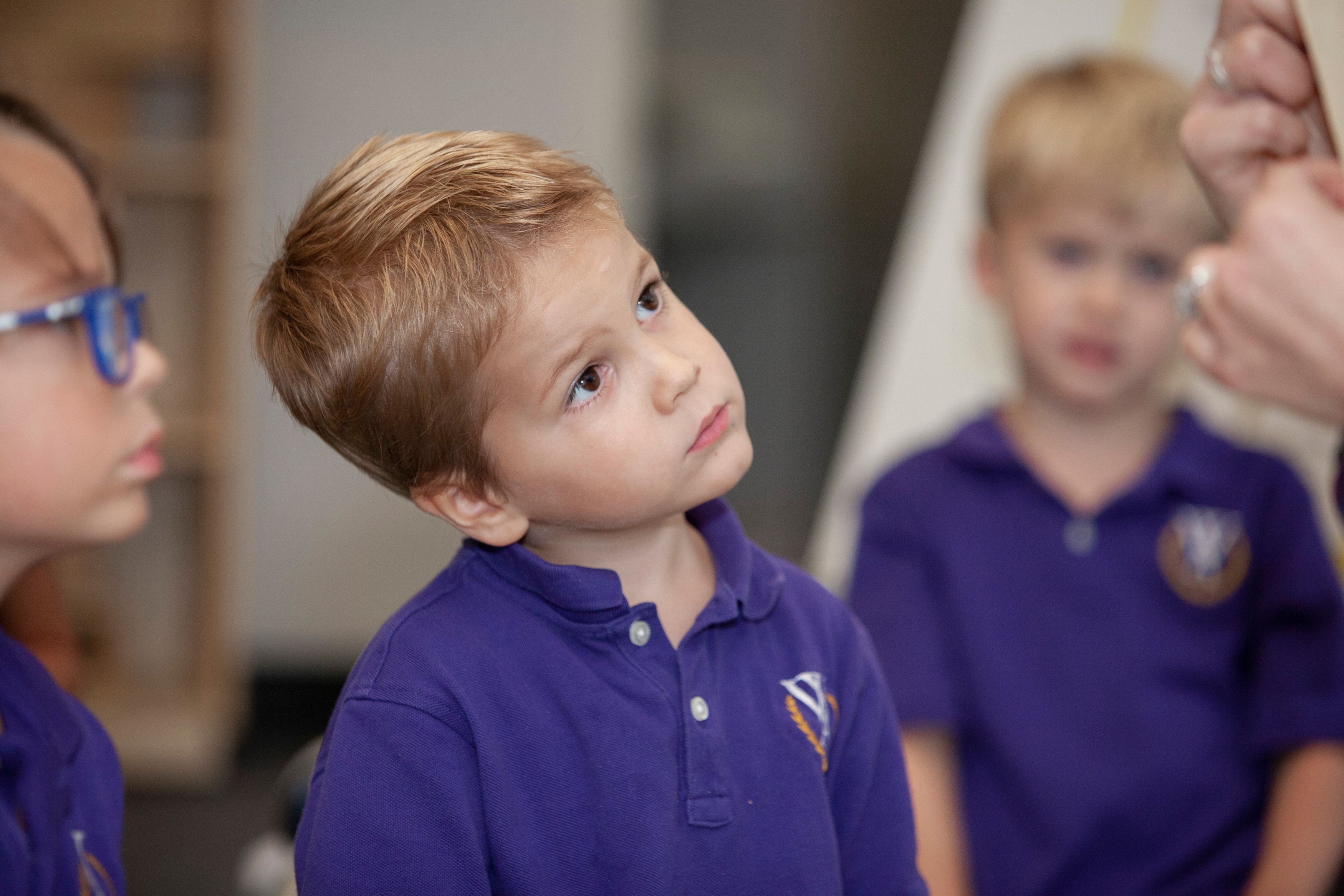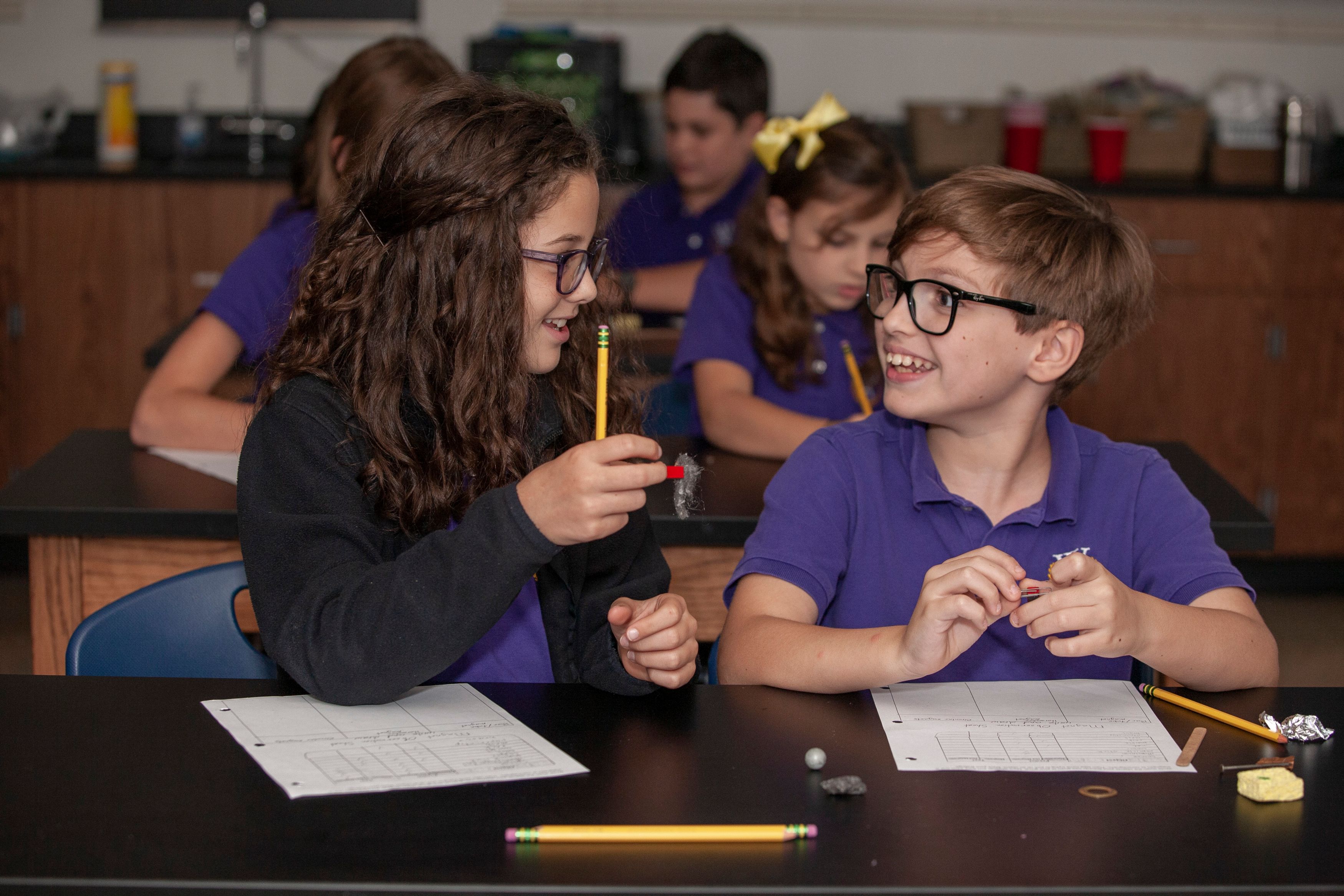Classical Christian education is the cultivation of virtue and wisdom by nourishing the soul on truth, goodness, and beauty according to God’s Revelation using the classical liberal arts. Its purpose is to train the soul to love that which is worth loving.
Classical Christian education takes advantage of natural inclinations of children at different stages of their development to maximize learning.
When young children find it easy and fun to memorize and enjoy choral recitations and chants, they are given opportunities to memorize all types of facts in math, geography, English, Bible and Latin. These facts are the “grammar” or building blocks inherent in every subject. Once they become teenagers, students tend to question the world, and they like to propose and discuss difficult problems that have no easy solution. These students are ripe for instruction and training in formal logic.
If all goes well, in their later high school years students begin to show signs of creativity. The students, anxious to achieve independence and longing to express themselves, are taught to communicate eloquently and persuasively through instruction in rhetoric.
It was Dorothy Sayers who proposed this marriage of the three stages of the Trivium (grammar, logic, and rhetoric) to the three stages of children development (roughly elementary, junior high, and high school). Through careful and thoughtful planning with a specific focus on curriculum and instruction, classical educators “cut with the grain” and help students develop skills that, once mastered, equip the children to learn for themselves.
In short, education is primarily about what we are trained to love, not just what we are taught to know.
Watch this short message from Head of Upper School Jonathan Callis at the 2023 Parent Open House.
The Trivium provides language, logic, and leadership mastery in three parts or phases– grammar (typically emphasized in k-6), Logic (typically in 7-9) and Rhetoric (typically in 10-12).
Our curriculum is built around a humanities core, based in great books, theology, philosophy, and history.
Socratic discussion, common placing (journaling great ideas & support), and a variety of engaging methods based in classical tradition create a very different classroom experience.
"By teaching them to read, we have left them at the mercy of the printed word. By the invention of the film and the radio, we have made certain that no aversion to reading shall secure them from the incessant battery of words, words, words. They do not know what the words mean; they do not know how to ward them off or blunt their edge or fling them back; they are a prey to words in their emotions instead of being the masters of them in their intellects… We have lost the tools of learning…” - Dorothy Sayers

 The Grammar stage encompasses the elementary grades. A child’s mind is like a sponge that can quickly and easily retain information. In this stage, we build a solid foundation across the curriculum by focusing primarily on language development, learning the skills of reading and writing while enjoying classic children’s literature, mastering the facts of math, basic science, Bible stories, and Scripture memory. In 2nd through 6th grades, students enjoy learning the basics of Latin grammar, vocabulary, and translation through chants and songs.
The Grammar stage encompasses the elementary grades. A child’s mind is like a sponge that can quickly and easily retain information. In this stage, we build a solid foundation across the curriculum by focusing primarily on language development, learning the skills of reading and writing while enjoying classic children’s literature, mastering the facts of math, basic science, Bible stories, and Scripture memory. In 2nd through 6th grades, students enjoy learning the basics of Latin grammar, vocabulary, and translation through chants and songs.  In the Logic Stage, students begin to reason. Students take the facts mastered in the Grammar Stage and learn how to organize and apply them and build structured arguments. In order to utilize these developing skills, students are expected to discuss actively in their classes. This prepares them for a deep and meaningful exploration in all subjects within a Christian world-view. The formal study of logic begins in 8th grade, but all students are intentionally taught reasoning skills beginning in Grammar School.
In the Logic Stage, students begin to reason. Students take the facts mastered in the Grammar Stage and learn how to organize and apply them and build structured arguments. In order to utilize these developing skills, students are expected to discuss actively in their classes. This prepares them for a deep and meaningful exploration in all subjects within a Christian world-view. The formal study of logic begins in 8th grade, but all students are intentionally taught reasoning skills beginning in Grammar School. Rhetoric is the final stage of the Trivium. Teens in the Rhetoric Stage are most concerned with self-expression and persuasion. In order to guide these interests in a positive direction, students learn to communicate across all disciplines in both speech and the writing. Formal study of rhetoric begins in 10th grade, but the basic skills of public speaking and argumentation are instilled through all levels of Westminster.
Rhetoric is the final stage of the Trivium. Teens in the Rhetoric Stage are most concerned with self-expression and persuasion. In order to guide these interests in a positive direction, students learn to communicate across all disciplines in both speech and the writing. Formal study of rhetoric begins in 10th grade, but the basic skills of public speaking and argumentation are instilled through all levels of Westminster.